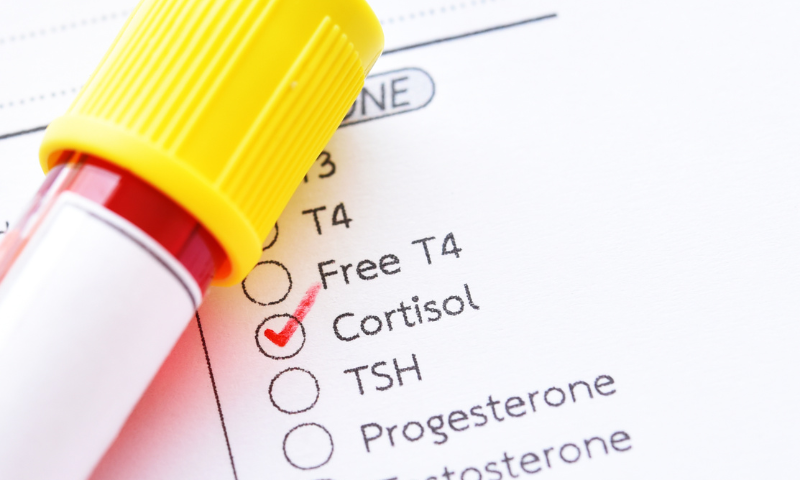There’s a complex internal orchestra at play that impacts the body’s ability to lose weight: hormones. Understanding the role of hormones in weight-loss can empower you to navigate your weight management journey with greater insight and effectiveness.
It’s time to explore what hormones are and how they impact the body, shedding light on the importance of hormone awareness for successful weight management.
Why Are Hormones Important?
Hormones are the body’s chemical messengers that regulate various physiological processes. They are made by glands in the body and travel through the bloodstream to target tissues, influencing growth, metabolism, reproduction and more. Hormones act as regulators, ensuring the body’s functions remain in balance and harmony.
What Hormones Influence Weight-loss?
Several hormones play a significant role in weight-loss, influencing how the body stores and burns fat. Here are some key hormones involved in the weight-loss process:
- Insulin: Produced by the pancreas, insulin regulates blood sugar levels and plays a crucial role in fat storage. High levels of insulin can promote fat accumulation, while low levels can make it challenging to access stored fat for energy.
- Leptin: Known as the satiety hormone, leptin communicates with the brain to indicate when we are full and helps regulate appetite. In some cases of obesity, individuals may develop leptin resistance, leading to an impaired feeling of fullness.
- Ghrelin: Ghrelin is the hunger hormone, stimulating appetite and encouraging food intake. Elevated ghrelin levels can lead to increased hunger, potentially making weight-loss efforts more challenging.
- Cortisol: Often referred to as the stress hormone, cortisol is released in response to stress. Elevated cortisol levels can promote fat storage, especially around the abdominal area.
- Thyroid Hormones: The thyroid hormones, including T3 and T4, play a crucial role in metabolism. An underactive thyroid (hypothyroidism) can lead to a slower metabolism, making weight-loss more difficult.
The Benefits of Understanding Hormones
Recognizing the influence of hormones on weight-loss is vital for several reasons:
- Personalized Approach: Understanding your unique hormonal profile can help you tailor your weight-loss strategies to address specific hormone imbalances.
- Overcoming Plateaus: Hormonal fluctuations can sometimes lead to weight-loss plateaus. By being aware of your hormones, you can adapt your approach and continue progressing toward your goals.
- Health Considerations: Hormone imbalances can impact your overall health, beyond just weight management. Identifying and addressing hormonal issues can promote overall well-being.
- Sustainable Weight-loss: A comprehensive approach that considers hormonal balance can lead to more sustainable weight-loss and long-term success.
Hormones play a pivotal role in the body’s systems, and understanding their impact on weight-loss can empower you in your quest for a healthier life. By being aware of the hormones involved in weight regulation, you can adapt your approach to weight-loss and address any potential imbalances that may hinder your progress.
When to See a Doctor for Hormone Testing
If you suspect that hormone imbalances may be affecting your weight-loss efforts, it’s crucial to know when to seek medical attention for hormone testing. Here are some signs that indicate it may be time to visit a healthcare professional:
- Unexplained Weight Gain or Loss: If you’ve been consistently following a healthy diet and exercise routine but are experiencing unexplained weight changes, hormone testing could shed light on underlying issues.
- Persistent Weight-Loss Plateaus: Struggling to break through weight-loss plateaus despite your best efforts may signal potential hormonal imbalances that require attention.
- Fatigue and Mood Swings: Hormonal imbalances can lead to fatigue, irritability and mood swings. If you’re experiencing these symptoms along with difficulty managing your weight, it might be time for hormone testing.
- Irregular Menstrual Cycles: For women, irregular menstrual cycles or other hormonal disruptions may be connected to body weight fluctuations. Consulting a healthcare professional can help identify and address these concerns.
- Increased Appetite or Constant Hunger: Hormones like ghrelin and leptin influence appetite. If you’re struggling with constant hunger or an insatiable appetite, it could be related to hormonal imbalances.
Understanding the role of hormones in body weight is a crucial aspect of a holistic approach to weight management. By seeking guidance from healthcare professionals well-versed in hormonal health, you can gain valuable insights into your unique hormonal profile and how it impacts your weight-loss journey.
Identifying and addressing any hormone imbalances can lead to more effective weight management and improved overall well-being. Remember to be proactive in your health journey and advocate for yourself when seeking medical advice. By combining expert guidance with personalized lifestyle changes, you can harness the power of hormones to achieve your weight-loss goals and live a healthier, more balanced life.






